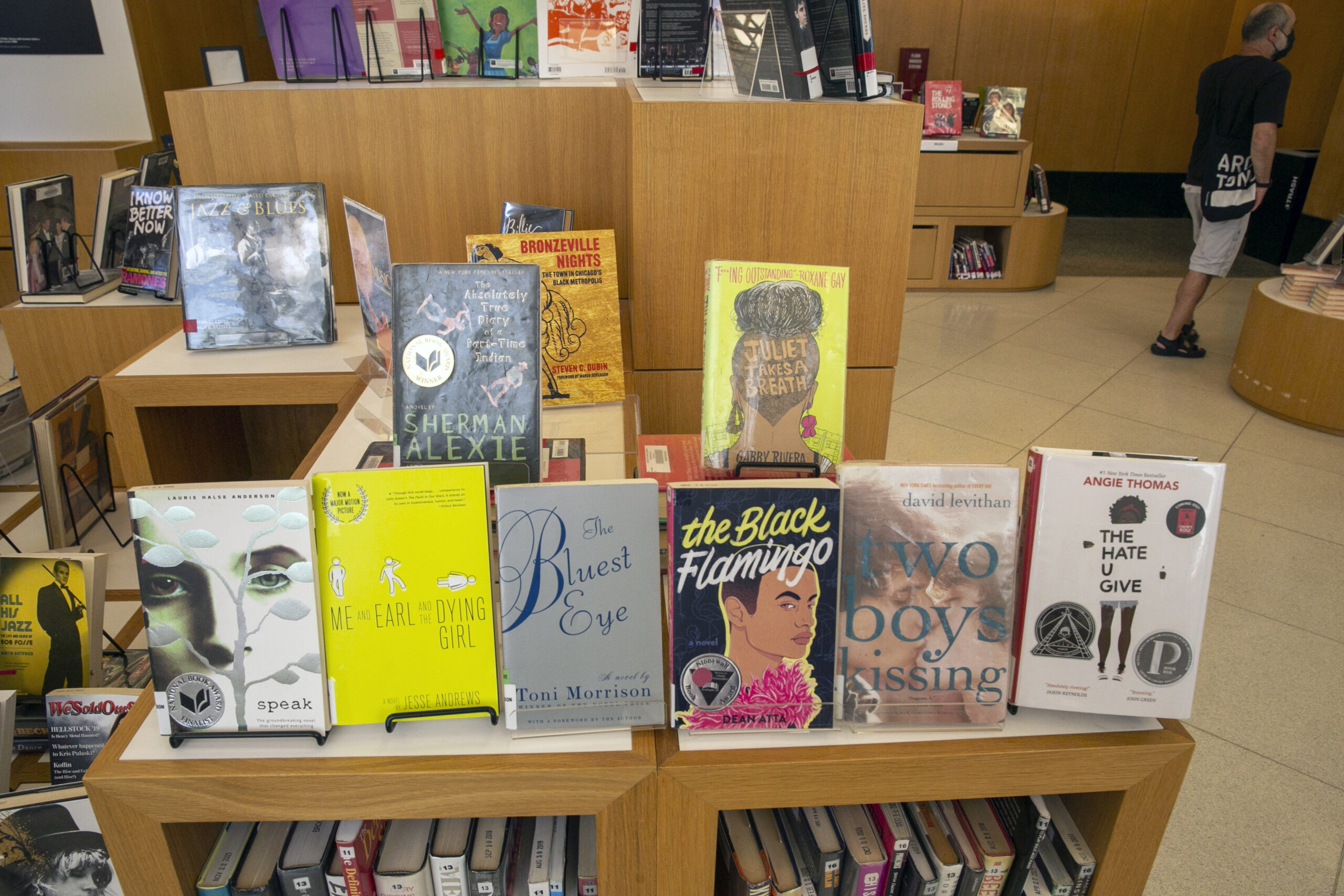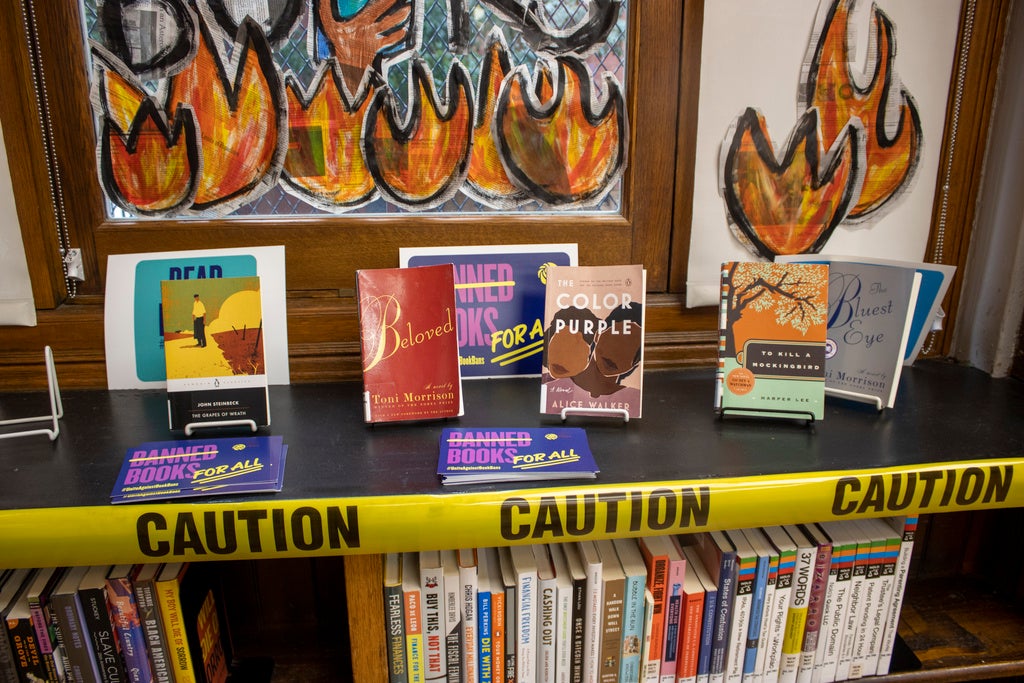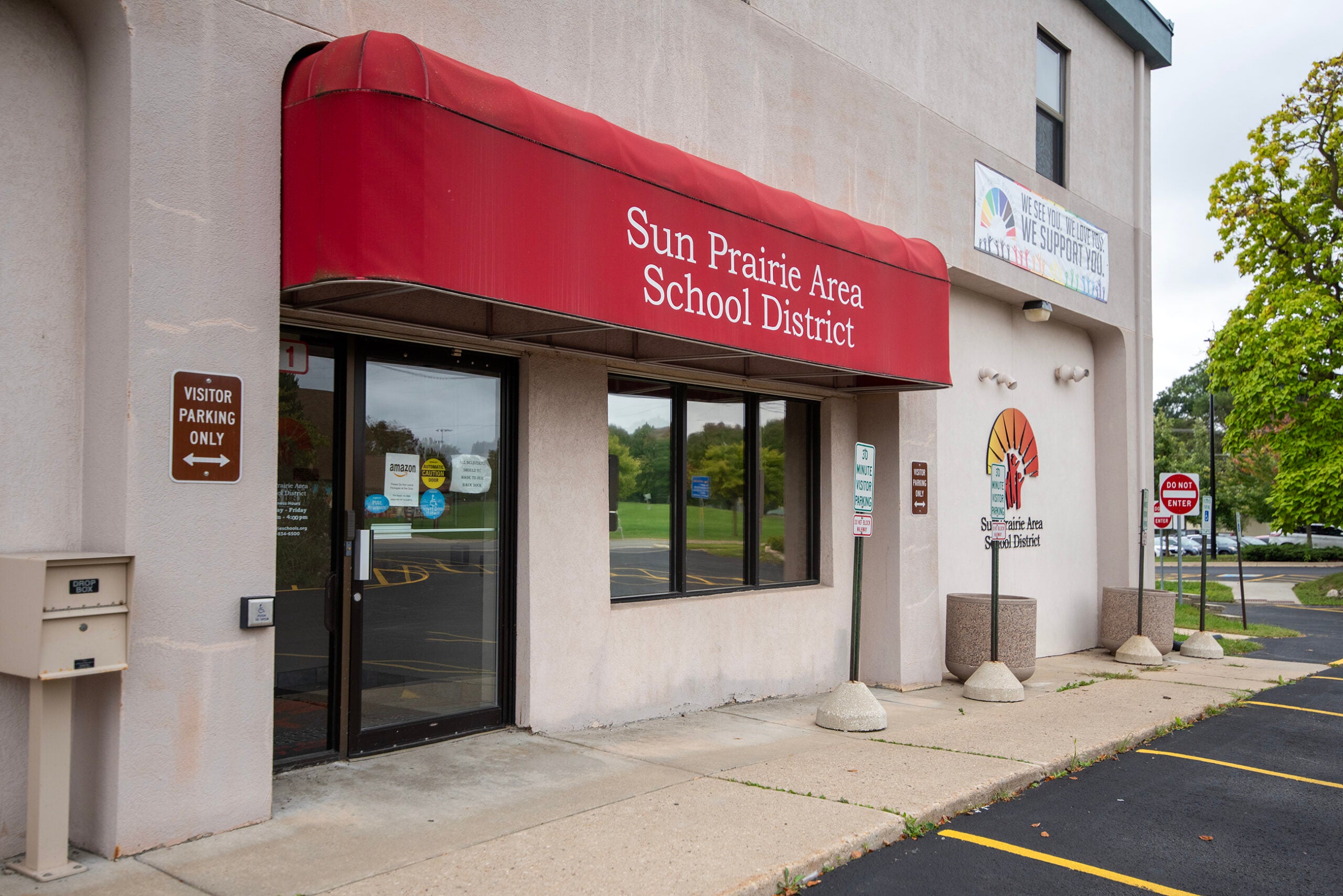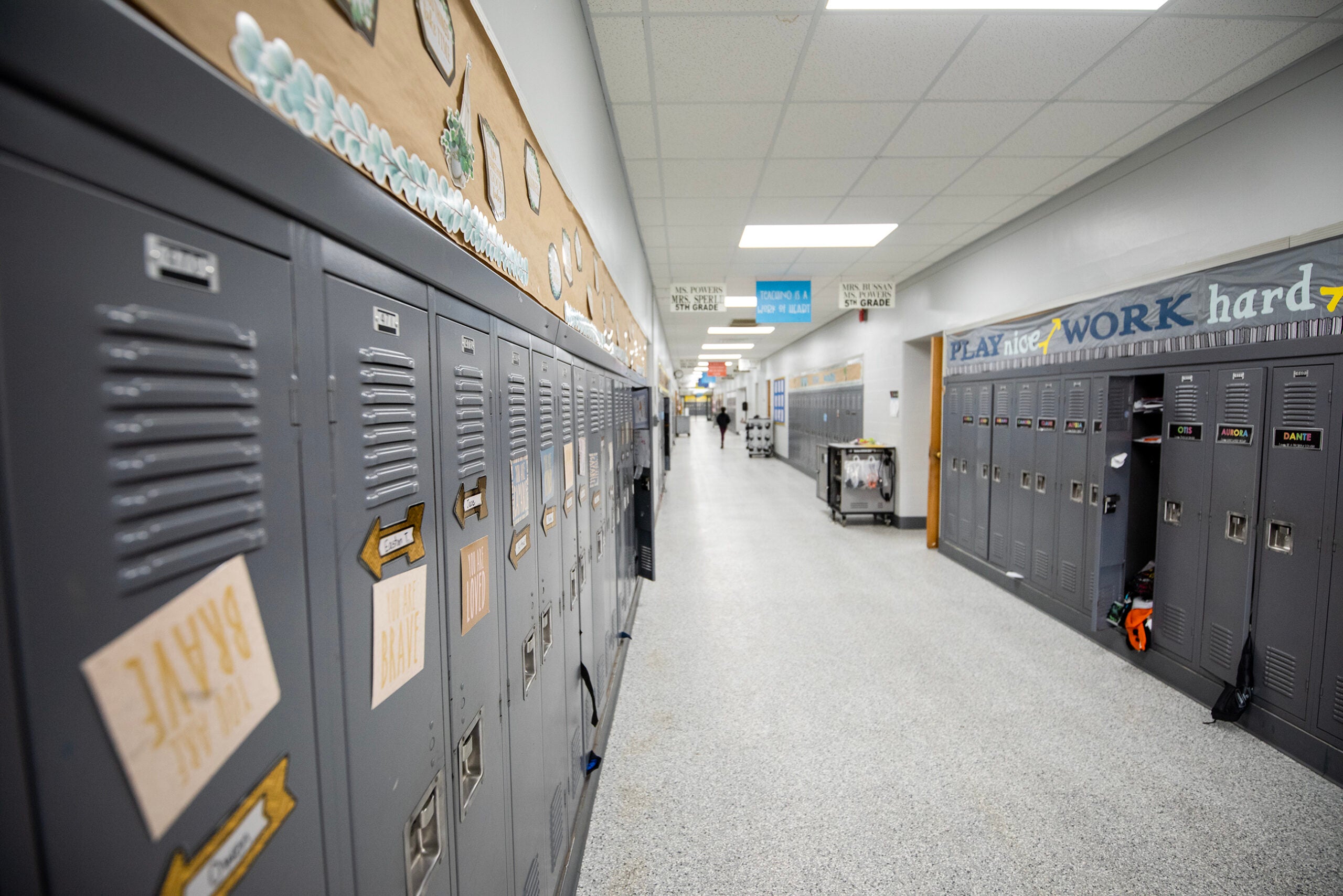After a parent challenged hundreds of books available to students in Elkhorn Area School District, administrators spent months studying the texts — and reconsidering how they should handle complaints at a time when libraries are facing increased scrutiny.
In the end, all 444 targeted books will remain on the shelves of at least some Elkhorn schools.
But district officials have come up with a new approach to students’ access to books that contain content some parents may find objectionable. And the district is considering changing how it handles complaints so books aren’t preemptively removed.
News with a little more humanity
WPR’s “Wisconsin Today” newsletter keeps you connected to the state you love without feeling overwhelmed. No paywall. No agenda. No corporate filter.
In November, parent Melissa Bollinger requested the school district in southeast Wisconsin reconsider 444 books across the middle school and high school libraries. Superintendent Jason Tadlock said previously it may have been the largest student reading material challenge in the nation.
Under district policy, all of the challenged books were removed from circulation while a review was underway.
In an email to families on Feb. 20, Tadlock said administrators decided to keep all of the titles in circulation. But some students will have to go through extra steps before checking out books that are restricted.
The district expanded an existing middle school policy requiring parental permission for access to certain books. That “restricted access” program is now in Elkhorn’s high school as well.
Of the 163 books Bollinger challenged in the middle school, 24 were sent to the high school library. Books shifted out of the middle school libraries included “Beloved” by Toni Morrison, “Life of Pi” by Yann Martel and “The Color Purple” by Alice Walker.
Sixty-four books remained or were placed on a “restricted-use” list in the middle school. Students interested in checking out books on the restricted list must be in eighth grade or have permission from a parent.
“We want access to students to have the material, but we also recognize that to have unfettered access to everything is kind of ridiculous and irresponsible as well,” Tadlock said.
The high school did not remove any of the 281 books Bollinger challenged. But 47 were put on a restricted list, including “Fun Home” by Alison Bechdel, “Looking for Alaska” by John Green and “The Bluest Eye” by Toni Morrison.
Tadlock said administrators evaluated the challenged books using ratings from Common Sense Media, Barnes and Noble, and Amazon.com.
Parental permission required for some restricted books
Tadlock said the number of restricted titles “exponentially grew” because of the book challenge.
Parents and guardians can grant permission for their students to access restricted books by completing a form.
As of Tuesday, parents of 96 of the more than 1,700 students affected responded to the Feb. 20 email by granting their child full access to all books.
“We wanted to develop a process recognizing and empowering parents. So really, that’s your choice as a parent to make those decisions for your students,” Tadlock said.
The district is in the process of redesigning how students access restricted titles.

‘A challenge of this magnitude’
Before the Nov. 30 request by Bollinger, Tadlock said only two books had been challenged during his 11 years with the district.
“We never anticipated to have a challenge of this magnitude at once,” Tadlock said.
The middle school principal estimates it took more than 24 hours of work to fulfill the request. The high school principal’s time was closer to 60 hours.
“That created a more significant disruption because of the quantity of the books,” Tadlock said.
At a Dec. 10 school board meeting, community members spoke out about the book challenge. The majority spoke in favor of open access for students.
Bollinger, the parent who initiated the book challenge, said not every book she flagged should be restricted. But she took issue with books including what she views as excessive profanity, sexual content and violence.
“The school library should advance the education of our students, not distribute porn,” Bollinger said. “We as a community need to protect our children from the things we know are harmful.”
Koda Rebernak, a sophomore, called the request “vile,” arguing if high school students are mature enough to have a driver’s license and a job, they should be able to read young adult fiction.
“This has felt even more disrespectful when many of my peers were able to find that this list of books under review had a pattern of relating to the experiences of minorities and genuine elements in many parts of our lives,” Rebernak said.
Elkhorn drafts new policy to challenge materials
The school board’s policy committee drafted a new policy related to the challenge of materials. The draft states five people have to submit a challenge request for a specific item before it is reviewed. It also eliminates the provision that the books are pulled from circulation upon being challenged.
“There’s not a perfect system out there. We were already working on this and trying to find a better tool for our librarians to determine and select the materials at the appropriate grade levels,” Tadlock said.
Tadlock suggests one solution is to come up with a specific standardized rating system for books, similar to how movies are rated. He also said librarians are reevaluating how books are brought into school libraries so they can get ahead of book challenges in the future.
Tadlock said principals and librarians worked meticulously as they evaluated each book to maintain the trust of parents — something he said is waning.
“(Administrators) honor and respect that level of trust that’s given to them. So they wanted to come up with a solution and a means to address it as best they could,” Tadlock said.
Wisconsin Public Radio, © Copyright 2025, Board of Regents of the University of Wisconsin System and Wisconsin Educational Communications Board.






